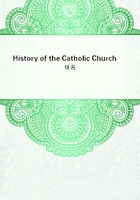
第316章
The Catholic clergy had sympathised with the movement from the beginning, but they had exerted themselves particularly in moderating the fury of their countrymen, and in protecting the Protestants, both laymen and clerics, from unnecessary violence.[53] But, as there was a danger that the movement would break up and that the Irish forces would be divided, it was necessary for the bishops to take action.
Religion was nearly the only bond that was likely to unite the Irish and the Anglo-Irish nobles, and the Church was the only institution that could give the movement unity and permanency. A meeting of the bishops and vicars of the Northern province was held at Kells (May 1642) under the presidency of Dr. Hugh O'Reilly, Archbishop of Armagh.
They prescribed a three days' fast, the public recitation of the Rosary and the Litanies, and a general Communion for the success of the war, issued a sentence of excommunication against murderers, mutilators, thieves, robbers, etc., together with all their aiders and abettors, denounced the Catholic Irishmen who refused to make common cause with their countrymen, and ordered all bishops, vicars-general, parish priests, and heads of religious houses to spare no pains to raise funds immediately for the support of the soldiers.[54] In May (1642) a national synod was held at Kilkenny. It was attended by the Primate of Armagh, the Archbishops of Tuam and Cashel, by most of the bishops either personally or by procurators, and by representatives of the religious orders and of the secular clergy. They declared that the war was being waged for the defence of the Catholic religion, for the preservation of the rights and prerogatives of the king, for the just and lawful immunities, liberties, and rights of Ireland, for the protection of the lives, fortunes, goods, and possessions of the Catholics of Ireland, and that it was a just war in which all Catholics should join. They condemned murder, robbery, and violence, advised all their countrymen to lay aside racial and provincial differences, took measures for the restoration of the cathedrals and churches to their owners, exhorted all, both clergy and laymen, to preserve unity, and called upon the priests to offer up Mass at least once a week for the success of the war.[55]
During the year 1642 the war had spread into all parts of Ireland, and most of the prominent nobles, with the exception of the Earl of Clanrickard, had taken the field. Owen Row O'Neill and Colonel Preston had arrived with some of the Irish veterans from the Continent, and had brought with them supplies of arms and ammunition. Urban VIII. had forwarded a touching letter addressed to the clergy and people of Ireland (Feb. 1642) and had contrived to send large supplies of weapons and powder. A general assembly of Irish Catholics was called to meet at Kilkenny in October 1642. There were present, eleven spiritual peers, fourteen lay peers, and two hundred and twenty-six representatives from the cities and counties of Ireland, under the presidency of Lord Mountgarrett. Generals were appointed to lead the forces in the different provinces, as unfortunately owing to the jealousy between the Anglo-Irish and the Irish nobles Owen Roe O'Neill could not be appointed commander of the national army. Arrangements were made for sending ambassadors to the principal courts of Europe, for the establishment of a printing-press, for raising money, and for the promotion of education. The Irish Franciscans of Louvain were asked to transfer their press and library to Ireland to help in the creation of a great school of Irish learning. Father Luke Wadding was appointed the Irish representative at the Papal Court, and agents were dispatched to France, Spain, the Netherlands, and to several of the German States. Urban VIII., yielding to the entreaties of the Irish ambassador gave generous assistance, and wrote to nearly all the Catholic rulers of Europe recommending them to assist their co-religionists in Ireland.
In 1643 the well-known Oratorian, Father Francesco Scarampi, landed in Wexford as the accredited agent of the Pope, bringing with him supplies of money and arms. Hardly, however, had he arrived, when he discovered that though the Irish armies had met with considerable success both against the Royalist forces in Dublin and the Scotch Covenanters in the North, negotiations had been opened up for an extended truce. The Anglo-Irish nobles had never been enthusiastic for the war as an Irish war. They fought merely to preserve their estates and to secure a certain degree of liberty of worship, but in their hearts they were more anxious about the cause of the king than about the cause of Ireland. The Marquis of Ormond, whom the king had created his Lord Lieutenant in Ireland, had many friends amongst the Lords of the Pale, and by means of his agents he succeeded in bringing about a cessation (Sept. 1643). The Irish Catholics were to send agents to the king for a full discussion of their grievances, and were to help him with supplies. Anxious to secure the help of the Irish Catholics, and fearing to give a handle to his parliamentary opponents by granting religious toleration, Charles was in a very difficult position, and to make matters worse Ormond was determined not to yield to the demands of the Catholics. He was prepared to make a conditional promise that the laws against them would not be enforced, but beyond that he was resolved not to go.